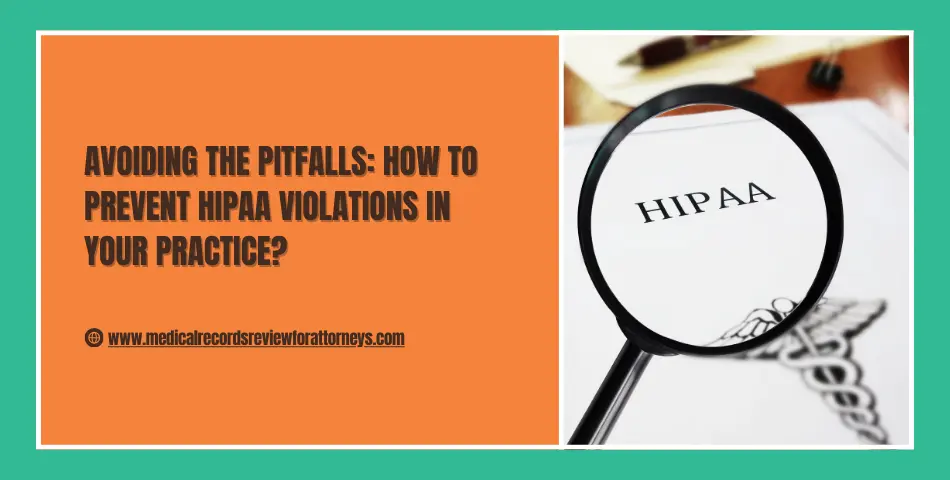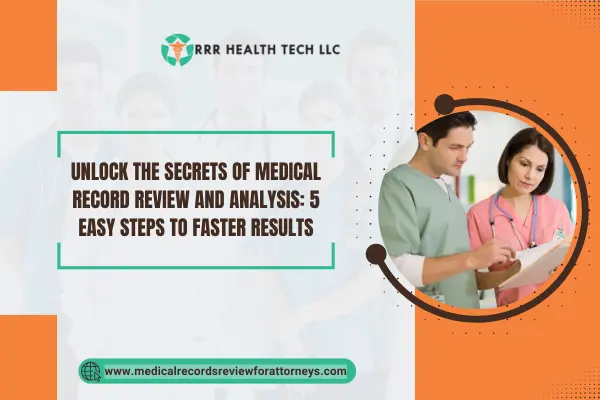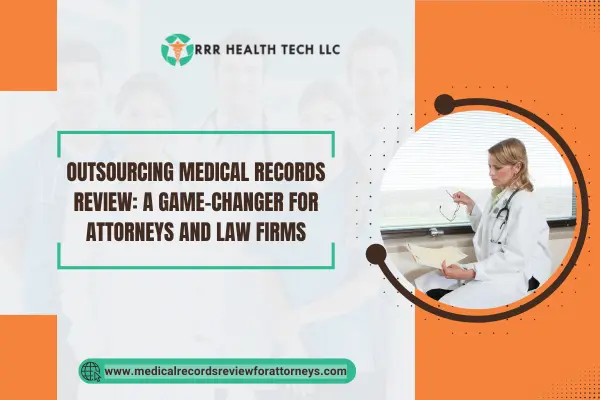
Introduction
One of the medical profession’s pillars is confidentiality; a law that protects that principle is the Health Insurance Portability and Accountability Act, also known as HIPAA. It presents guidelines outlining how sensitive health data should be safeguarded. Those who breach these guidelines may face hefty consequences with penalties ranging from $100 to $50,000 for each violation and a limit of $1.5 million for multiple offenses over one year.
The above consequences are important for both health professionals as well as attorneys. This article will assist in addressing the intricacies of HIPAA law, including ways to prevent breach of such laws, and applying good practices that ensure upheld legal requirements on patient privacy.
Understanding HIPAA Regulations and Common Violations
The Health Insurance Portability and Accountability Act (HIPAA) is key to the healthcare industry since it sets boundaries that govern how sensitive patient data is managed. Central to the fundamental elements of the HIPAA system are the privacy rules which determine how patient medical information such as records and billing information should be portrayed. Protected health information (PHI) encompasses all the information capable of identifying a patient about his or her health, treatment, or even payment.
HIPAA breaches can occur in different ways such as infrequent breaches that can be considered serious breaches. Even incidental violations such as sharing PHI by accident with someone who has no authorization can be subject to severe penalties and fines that may amount to $50,000 per violation. The breach notification rule under HIPAA mandates that all covered entities report both the individuals affected and the Department of Health and Human Services in case such a breach occurs. Violation of privacy provisions has exceptions in some instances including the appropriate use of the disclosure in the interest of protecting the public or during a legal investigation.
The Role of Compliance Programs in Preventing HIPAA Violations
Compliance programs must be adopted by many healthcare entities and their business associates to help reduce risks associated with a breach of HIPAA rules. Such programs are important in minimizing the impacts of possible violations because they assist in protecting sensitive patient information from being compromised.
Key components of effective compliance programs include:
- Regular Risk Assessments: This is a great tool for pinpointing potential weaknesses in the management of Protected Health Information and that assessment helps deal with any potential threat at an early stage.
- Employee Training: Privacy policy and how staff manages PHI is an issue of concern that must be internalized by all the staff. Exposure/tutorials are dynamic as current regulations are always changing, and employees always need to be educated on new developments in the industry.
Focusing on these factors will help healthcare providers in avoiding breaches consequently evading penalties that can go as high as $1.5 million per year.
Best Practices for Safeguarding PHI and Avoiding Violations
The measures that are geared toward protecting an individual’s PHI (Protected Health Information) are critical in averting violations of the HIPAA rule. These include the following:
- Implement strict access controls: Based on roles, personnel who are allowed to view sensitive data should be as brief as possible.
- Use data encryption techniques: As information is stored and in the process of being transmitted, applying encryption strategies offers a higher level of security thereby making it hard for data breaches.
- Understand the seriousness of HIPAA violations: The Department of Health and Human Services does not shy away from stressing the appreciation of the gravity of HIPAA violations that can attract thousands of penalties for every violation against the law.
- Prioritize these practices: These practices need great emphasis as they can assist in breach prevention and compliance all indicating the significance of protecting the PHI within the healthcare sector.
Educating Patients About Their Rights Under HIPAA Regulations
However, it is equally important for patients to educate themselves about their rights concerning their Protected Health Information (PHI) under the HIPAA rule. For any covered entity provision of notice of privacy practices must be adhered to so that patients are well enlightened as to how their information may be utilized and available for disclosure.
Patients should be aware of their right to:
- Request privacy safeguards and limitations.
- Access their PHI and receive copies.
- The right to rectify inaccuracies in their medical records is guaranteed.
There are cases where the right to remain silent no longer is applicable, however, such as providing information during an investigation into the state of public health or in cases of emergency. It is important to understand that some unauthorized sharing of identifiable information even without the intention to cause harm falls within an incidental breach of HIPAA.
Conclusion
It is important in today’s World that all healthcare organizations adopt a culture of compliance rather than seeing this as a mere requirement from the HIPAA laws. Such adherence to these provisions allows the provision of protection for the patient’s sensitive information and lowers the concerns that are related to the risk of HIPAA breaches.
As more information regarding the reforms in the world of healthcare goes live, the attorney’s role in this landscape also comes into focus. Thus, attorneys’ clients must be actively encouraged to comprehend the ramifications of their actions to prevent the chances of HIPAA breaches taking place.
Key Actions for Attorneys:
- Information on HIPAA compliance policy should be reiterated regularly.
- In cases where breaches do occur, changes to policy should prevent further occurrences.
- Assist clients – COPs or ‘business associates’ in the competitive acquisition, access, or use of other companies’ PHIs.
Ensuring clients are never a member of the list of HIPAA violators clearly states the concern for controlling measures and planning procedures to prevent sensitive health information from being shared without permission.
FAQs (Frequently Asked Questions)
What is HIPAA and why is it important?
The Health Insurance Portability and Accountability Act (HIPAA) is a legislation designed to safeguard the interests of patients by establishing standards for securing their health information (PHI). Its relevance comes from the guarantee that patient data will be kept confidential by healthcare practitioners and hence, the trust in the healthcare system is preserved.
What are common types of HIPAA violations?
Some instances include accidental violations, breaches of patient information privacy, lack of adequate notifications of media breaches, and abuse assessments. Each of them bears a potentially horrible consequence for any healthcare provider and the fines are usually quite large in practice.
How can compliance programs help prevent HIPAA violations?
The possibility of committing violations of HIPAA will be less in situations where comprehensive compliance programs are in place. Regular risk assessments, training employees in privacy practices at work, and maintaining robust systems of access control will be some of the important measures. Such measures will make it possible for all staff members to appreciate the scope of their duties regarding the privacy of the patient’s records.
Ensure HIPAA-Compliant Medical Record Services with Ease
Protecting your clients’ privacy is our priority! RRR Health tech delivers HIPAA-compliant medical record review and analysis, giving attorneys peace of mind with secure, confidential, and reliable services. Partner with us to streamline your cases while staying compliant.


